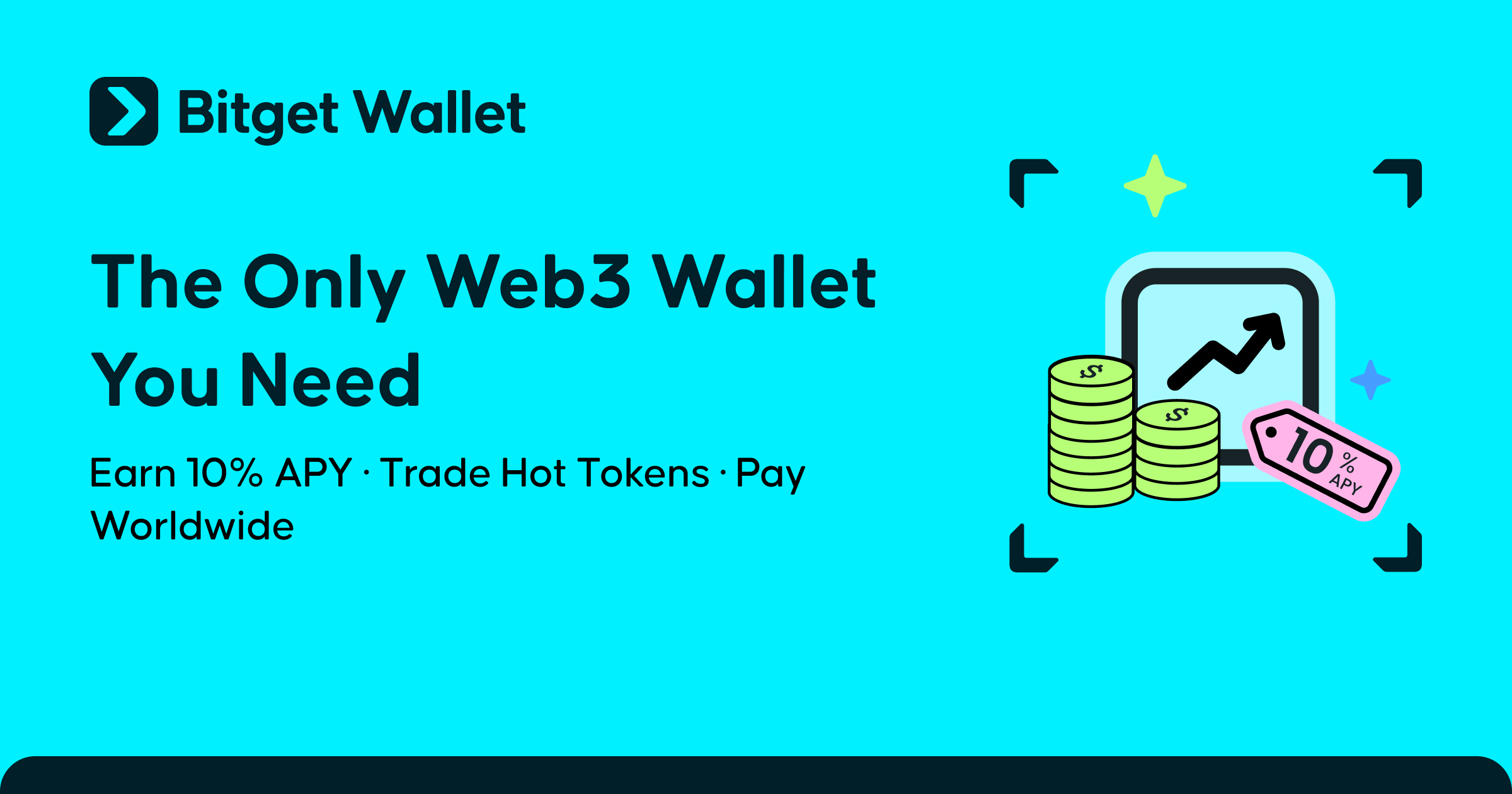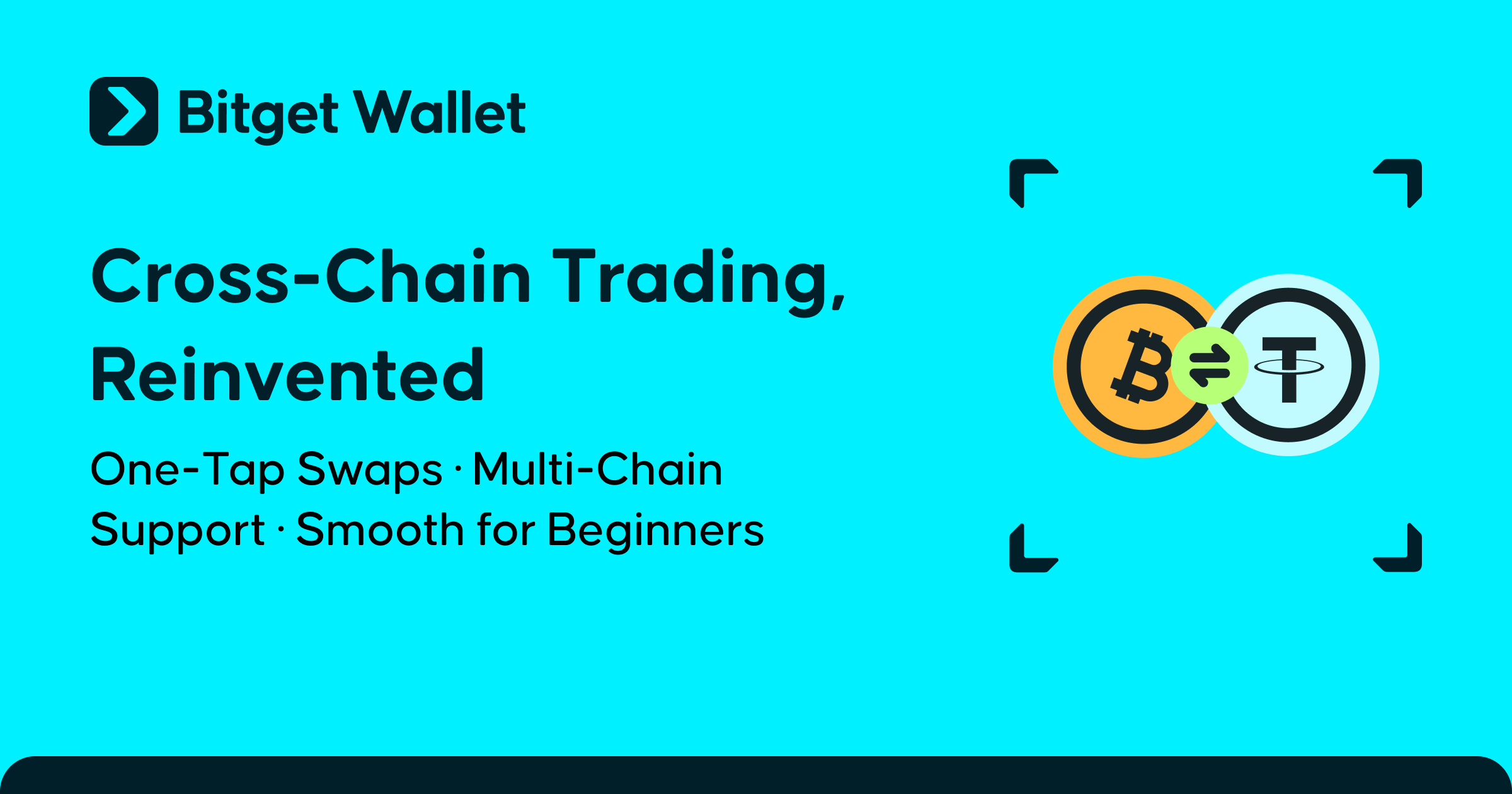What is SUI Blockchain an How does It Compare to Other Blockchains?
The "blockchain trilemma"—achieving decentralization, security, and scalability simultaneously—has been a challenge for most blockchain networks. While many have struggled to solve this issue, Sui Blockchain emerges as a potential game-changer in the crypto space.
So, what is Sui Blockchain, and how does it aim to redefine scalability and performance? In this article, we’ll explore Sui's cutting-edge technology, its native token, and compare it to other major blockchains like Ethereum and Solana. Plus, discover how you can safely store and manage your SUI tokens with Bitget Wallet for a seamless experience!
What is SUI?
Developed by Mysten Labs, a team with roots in Meta's Diem project, SUI is a Layer 1 blockchain renowned for its novel approach to speed, scalability, and security. Since its mainnet debut in May 2023, the project has been trying to resolve the limitations of traditional blockchains and unlock the full potential of Web3 applications.
What can SUI do?
Unlike most blockchains that execute transactions sequentially, SUI leverages parallel transaction execution. Imagine a highway with numerous lanes instead of a single, crowded road.
This enables SUI to process a large number of transactions simultaneously, leading to minimal latency and blazing-fast speeds of up to 125,000 TPS. That’s why SUI is a game-changer for applications requiring high throughput, such as gaming, DeFi, and NFTs.

Key features of SUI blockchain
SUI does not end with parallel transaction execution. It has a number of additional new features that improve security, efficiency, and user experience. Let's take a deeper look at some of the main components that distinguish SUI.
-
Move programming language:
SUI makes use of Move, a Rust-based programming language that is safe and efficient. Move was built exclusively for blockchain development, allowing developers to write sophisticated and secure smart contracts. -
Delegated Proof-of-Stake (DPoS):
SUI utilizes a DPoS consensus mechanism where SUI token holders elect validators to secure the network. The DPoS approach helps strike a balance between decentralization and efficiency. -
Asset ownership:
SUI Network presents a unique idea of asset ownership, which allows assets to be designated as "owned" or "shared." This method enables owned assets to be transferred quickly without consensus, thereby increasing transaction speed. -
Distributed computing:
The network's design supports dynamic resource scaling in response to network demand. In this approach, SUI can handle peak loads without compromising performance or raising transaction fees. -
Low gas fees:
SUI's design keeps transaction fees low (around $0.001 per transaction), making it accessible to a wider range of users and applications.
How does SUI token work?
SUI tokens are the lifeblood of the Sui Network, allowing it to run and grow smoothly. More than just a digital currency, SUI is a utility token that powers many components of the ecosystem, such as:
-
Gas fees: Like many blockchains, SUI uses a gas fee system to prevent network spam and incentivize validators. Users pay gas fees in SUI to execute transactions and interact with smart contracts.
-
Staking: SUI holders can stake their tokens to participate in the network's Delegated Proof-of-Stake (DPoS) consensus mechanism. By staking SUI, users contribute to network security and earn rewards.
-
Governance: SUI token holders have a voice in the future development of the SUI network. They can participate in governance proposals and vote on key decisions that shape the ecosystem.
SUI tokenomics
SUI has a fixed total supply of 10 billion tokens. However, only 528 million tokens are currently in circulation.
They are distributed across various stakeholders, including the community, early contributors, investors, and the Sui Foundation. Specifically, the distribution portions are as follows:
-
The Sui Foundation: 50%
-
Mysten Labs Treasury: 10%
-
Early investors: 20%
-
Fundraising: 14%
-
Community Access Program: 6%
SUI ecosystem
SUI, a blockchain that is relatively new, has already attracted a thriving ecosystem of decentralized applications (dApps). These dApps are classified into a variety of categories, such as:
-
DeFi: SUI is home to several decentralized exchanges (DEXs), yield farming protocols, and lending platforms.
-
NFTs: SUI supports both traditional and dynamic NFTs, opening up new possibilities for creators and collectors.
-
Gaming: Several games are being built on SUI, leveraging its high speed and low latency to provide a seamless gaming experience.
-
SocialFi: SUI is also fostering the development of decentralized social media platforms and other social applications.
What's the difference between SUI and other blockchains?
SUI is often compared to other Layer 1 blockchains, such as Ethereum and Solana. While they all seek to offer a platform for decentralized applications, they vary greatly in design, performance, and general strategy.
SUI vs. Ethereum vs. Solana
Here's a breakdown of how SUI stacks up against Ethereum and Solana:
| SUI |
Ethereum |
Solana |
| Delegated Proof-of-Stake (DPoS) |
Proof-of-Stake (PoS) |
Proof-of-Stake (PoS) with Proof-of-History (PoH) |
| Move (designed for secure smart contracts) |
Solidity |
Rust, C++, C |
| High speed (up to 120,000 TPS) due to parallel transaction execution, enabling high scalability |
Moderate speed (15-30 TPS), scalability improving with Layer 2 solutions |
High speed (up to 4,000 TPS), generally high scalability but can experience congestion |
| Low gas fees |
High gas fees (can fluctuate significantly) |
Low gas fees |
| Lower decentralization (currently), with potential for improvement |
High decentralization |
Moderate decentralization |
As you can see, SUI excels in transaction speed and scalability thanks to its parallel execution and novel design. Although Solana is also known for its speed, it faces occasional congestion issues, which SUI aims to address.
Nevertheless, the number of validators in SUI is presently lower than that of Ethereum and Solana. This drawback raises concerns about its level of decentralization.
▶Learn more about SUI:
- All you need to know about SUI
- SUI vs Solana
- Sui TVL Soars, Which DeFi Projects Should You Pay Attention To?
How to store and manage SUI with Bitget Wallet?
Bitget Wallet is a trusted, multi-chain solution for securely storing, managing, and growing your SUI tokens. With its user-friendly interface and robust features, it offers a complete toolkit for managing your digital assets efficiently. Here’s why Bitget Wallet stands out:
Key features of Bitget Wallet for SUI management
-
Total Asset Control
- Full ownership of your SUI tokens with a multi-chain wallet.
- Easy access to your assets anytime, anywhere.
-
Simple and Fast Transactions
- Intuitive design for seamless sending and receiving of SUI tokens.
- Track your balance and transaction history in just a few taps.
-
Top-notch Security
- Advanced protection with two-factor authentication (2FA).
- Cold storage integration to safeguard your funds against hacks.
-
Explore the SUI Ecosystem
- Effortlessly connect to Sui Network’s dApps.
- Participate in staking to earn rewards and maximize returns.
- Unlock DeFi opportunities directly through the wallet.
Why choose Bitget Wallet for SUI?
- All-in-One Solution:
Manage, store, and interact with SUI tokens and decentralized applications (dApps) within one platform. - User-Friendly Interface:
Perfect for beginners and experts alike, offering a smooth experience. - Enhanced Security:
Stay protected with industry-leading safety features.
How to get started with SUI on Bitget Wallet?
- Download Bitget Wallet: Available for both iOS and Android devices.
- Create or Import a Wallet: Set up a new wallet or import an existing one.
- Add SUI Tokens: Easily add your SUI holdings to the wallet.
- Start Exploring: Connect to Sui dApps, stake SUI, and access DeFi opportunities securely.
Pro Tip: With Bitget Wallet, you can unlock the full potential of the SUI ecosystem while ensuring your digital assets remain safe and easily accessible.
Make Bitget Wallet your go-to solution for managing SUI and other blockchain assets seamlessly!



















